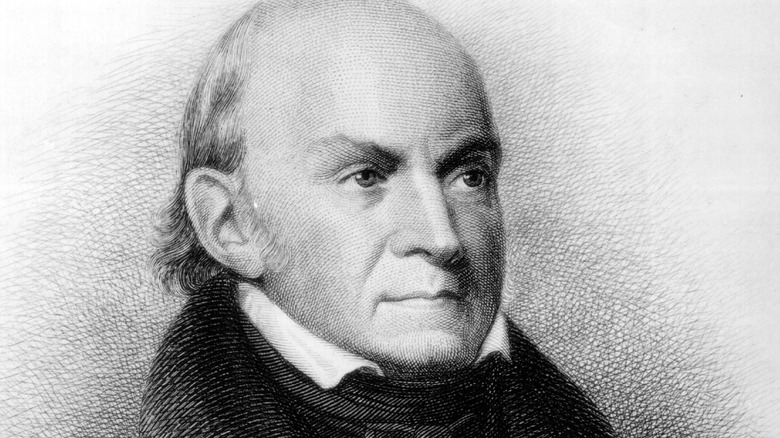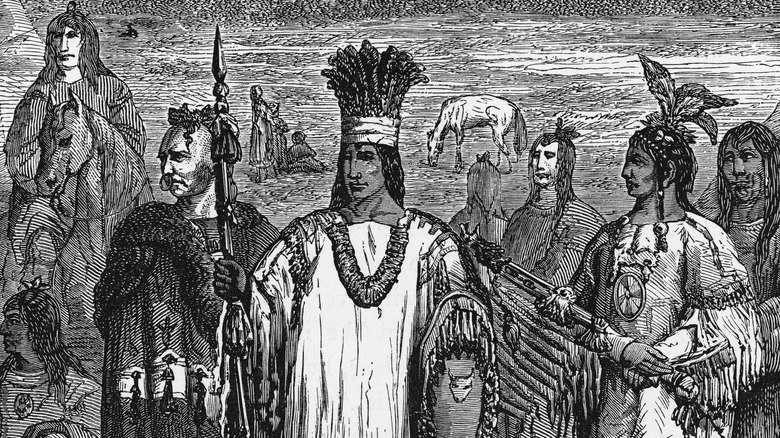John Quincy Adams' Biggest Regret As President May Surprise You
John Quincy Adams is one of those historical figures that is often forgotten, which is a bit surprising considering who his father was. As the son of John Adams, who was also a founding father and president, John Quincy Adams had some big shoes to fill. According to the White House, Adams had an extensive political career prior to his run for president, including serving in the U.S. Senate and as U.S. minister to Russia and the Netherlands. His most important role before becoming president was as Secretary of State under his predecessor James Monroe.
Adams played a significant role in American policymaking when serving under President Monroe. Per History, he was instrumental in helping to negotiate the Treaty of Ghent, which effectively ended the War of 1812. Adams also was highly influential in President Monroe's foreign policy, resulting in what we know today as the Monroe Doctrine. With all of this political experience under his belt, you would think the role of president would be somewhat natural for John Quincy Adams. Turns out this was not exactly the case.
Rocky beginnings lead to a change of heart
Adams was elected in 1824 under some potentially shady circumstances. Despite the scrutiny, he took office and immediately had legislation on his desk to sign. Indian Country Today states that Adams signed the Indian Springs Treaty, which called on the Creek Nation of Georgia to give up all of its land and move west in exchange for $400,000. They would also receive an area of land "acre for acre" or equal in size to the land they left in Georgia. The treaty was approved by Congress in 1825, but almost before the ink dried, problems arose.
Indian Country Today also states that shortly after signing the treaty, Adams regretted his decision. After discussing the terms of the treaty with the leaders of the Creek Nation, it appeared that it was not negotiated in good faith, and to his credit, Adams tried to undo the treaty. This resulted in serious backlash from the House of Representatives as well as the new settlers in the territory of Georgia.
Though the treaty was renegotiated in 1826, the issues between Native Americans and the U.S. government haunted Adams throughout his presidency. However, his views on what they referred to as 'Indian policies' changed over time. Adam's personal journal even states, "We have talked of benevolence and humanity, and preached them into civilization, but none of this benevolence is felt where the right of the Indian comes in collision with the interest of the white man."

